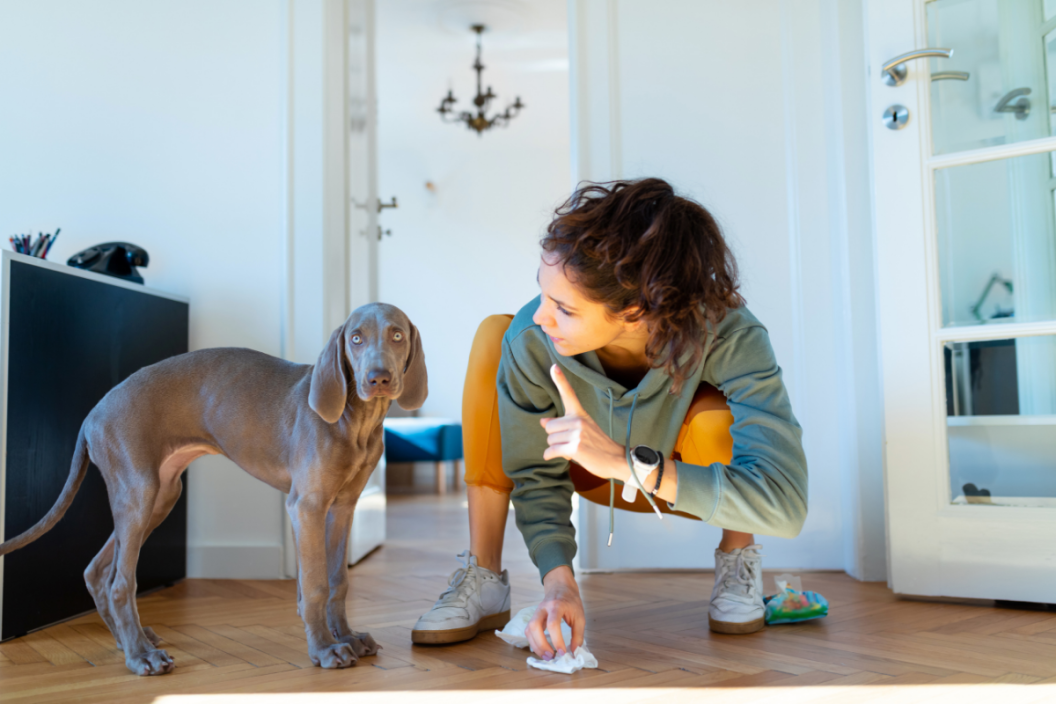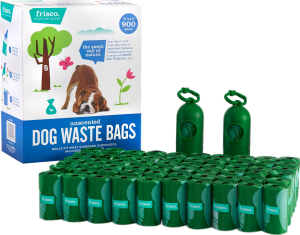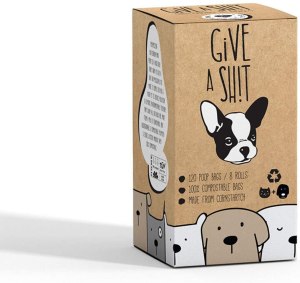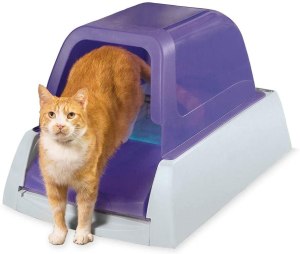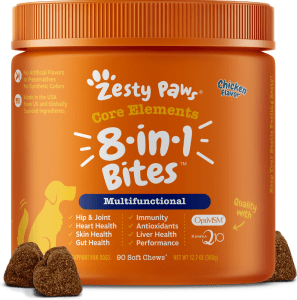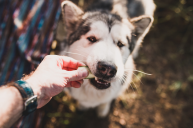If your dog eats poop, there could be a reason behind his smelly snack.
The scientific name is coprophagy. It may be a defined behavior, but it doesn't make it any less disturbing to see your dog eating feces. He might eat his own poop, or he might prefer to eat cat poop from your cat's litter box. Regardless of the source, dogs eating poop is high on the list of unpleasant surprises. Not to mention, poop eaters can develop intestinal parasites and medical issues from their poop-eating habit. Stool eating is more common in dog behavior than we'd like to think, especially during the house training phase. Fortunately, this behavioral issue can be changed with positive reinforcement.
So you've caught your dog eating poop, but why do dogs eat poop? And how can we make them stop?
Zay Satchu, DVM and Chief Veterinary Officer of Bond Vet in New York City, explains to Wide Open Pets.
Why does my dog eat poop? Is it attention-seeking? A bad habit? Nutritional deficiencies? Help!
Dr. Satchu: We don't know all the reasons dogs eat poop, although it is not necessarily abnormal, especially during puppyhood. Some theorize that it might be part of a dog's natural scavenging behavior, so puppies especially may be exploring new things with their mouth. Potty training methods may also contribute. If any negative reinforcement or scolding is used when a dog defecates in the wrong place, the pup may try to 'destroy the evidence' by eating their poo.
Fortunately, many puppies grow out of this behavior as adult dogs, although sometimes the habit does continue into adulthood. It's possible some component of the stool, some remnant of the digested ingredients, could have an attractive scent to a dog's sensitive nose.
Is it harmful? It has to be, right?
Dr. Satchu: So long as a dog receives regular dewormings and doesn't currently have a parasite issue, eating their own stool usually isn't a concern—at least not for the dog's health, although it may interfere with their social interactions with humans who don't appreciate the smelly kisses! Eating the stool of other dogs of unknown parasite/infectious disease status could be a concern. For other species, the risk is variable. Some species carry parasites that are transmissible to dogs, while others do not. Goose poop, for instance, can pose a risk of salmonella or Campylobacter bacteria, which can cause diarrhea.
How do we get them to stop?
Dr. Satchu: No matter what type of poop your dog is eating, discuss your concerns with your vet, who can determine the best frequency for parasite checks and preventive dewormings for your dog. If your dog is old enough, consider teaching her commands such as 'leave it.' Many food additives have been suggested as solutions. It may be worth trying them, one at a time, for a few days each to see if it helps. These include one or two chunks of fresh pineapple, 1/8 teaspoon of Adolph's unseasoned meat tenderizer added to her food and For-bid coprophagia deterrent. The amount of For-bid added to food may vary with a dog's size, so check with your vet if you're not sure. Some have also suggested probiotics formulated for canines in case the dog is trying to adjust their gut biome. While not proven, that may be worth a try too.
Here's what else can help you fulfill your noble mission:
Frisco Refill Dog Poop Bags and Two Dog Poop Bag Dispensers
The humble dog poop bags are the first line of defense in your fight against coprophagia. A quick pick-up keeps the poop away from your dog, but just as importantly, you're paying it forward. Your fellow pup parents will appreciate less poo around for their dogs to find. The best dog poop bags are leak proof, keep smells inside and are easy to open, even in the dark. This set checks those boxes at a budget-friendly price.
Give a Sh*t Biodegradable Dog Poop Bags
These compostable dog poop bags, aka biodegradable dog poop bags, are zero waste and perfect for multi-dog households. Even the box and tube are made of entirely recycled cardboard. And, putting their money where their mouth is, the brand donates 10 percent of its profits to help the plight of dogs and cats in Asia.
Petmate Top Entry Litter Box
If your dog typically has his sights set on his feline sibling's excrement, you may want to try a 'dog-proof' litterbox like this one. Your cat enters in through the top, and while larger dogs may be able to stick their head inside, smaller dogs can't gain access. Just make sure your cat doesn't mind the change.
PetSafe ScoopFree Self-Cleaning Litterbox
Another approach to keeping your dog out of the litter box is to invest in a self-cleaning one. The less time the poo lingers in the box, the less likely your doggo will get to it. This one rakes the feces out of the box as soon as your cat exits. Self-cleaning litter boxes, in general, tend to be glitchy and crazy expensive. The PetSafe ScoopFree is (relatively) reasonably priced and garnered nearly 12,000 five-star ratings on Amazon.
Zesty Paws Core Elements 8-in-1 Multivitamins
As the American Kennel Club reported, some vets and dog owners have seen a lessening of poop eating after introducing a multi-vitamin into their dog's diet. The theory goes that dogs eat poop because they suffer from malabsorption in their intestinal tract. Without having their nutritional needs met, they'll turn to their own feces or other droppings to make up for their weight loss. Veterinary medicine shows different possibilities for that missing vitamin or mineral that triggers the behavior. Your dog's food should meet all his nutritional needs anyway, but a dog multivitamin could be helpful. This one's got a soft, chewy texture, is chicken flavored, and can be offered to all breeds of dogs regardless of size.
Has your dog ever done anything super weird? Tell us on the Wide Open Pets Facebook Page!
Editor's Note: Products featured on Wide Open Pets are independently selected by our editors. However, when you buy something through our links, we may earn a commission.
